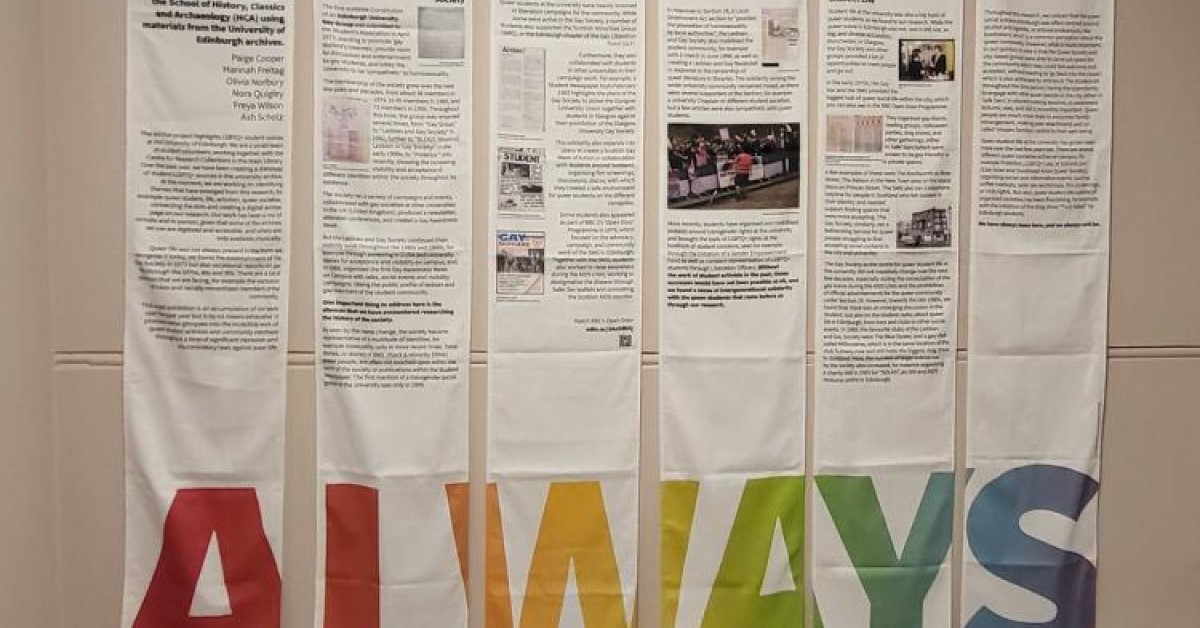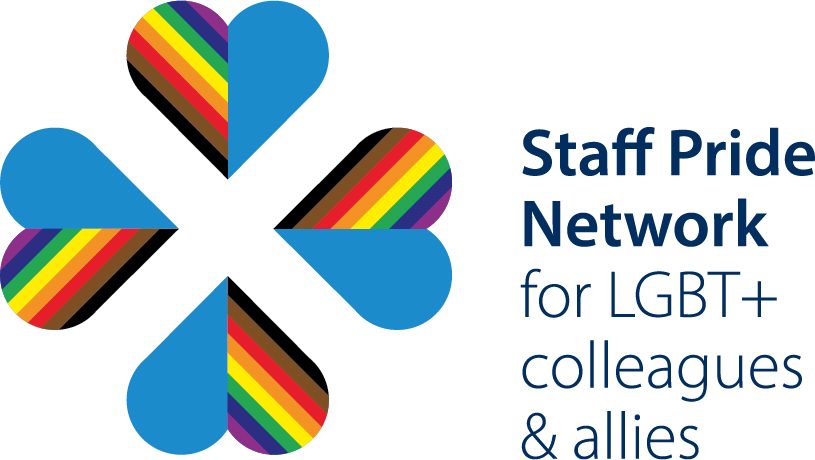Category: Staff Pride Network
What does it mean to be queer in Edinburgh? Ash is a fourth year History and Politics student, and student ambassador. Ever since arriving at the university as a queer person, I have felt that there such a wide array of queer events, LGBTQ+ societies and groups in the city, but the amazing queer […]
The University of Edinburgh Staff Pride Network supports LGBT+ colleagues and allies, one of whom is HCA staff member Emma. We asked her about her role as Ally Representative. Hi there! I’m Emma, the School of History, Classics and Archaeology’s Modern Apprentice who has recently been appointed as Ally Representative in the University of Edinburgh […]



